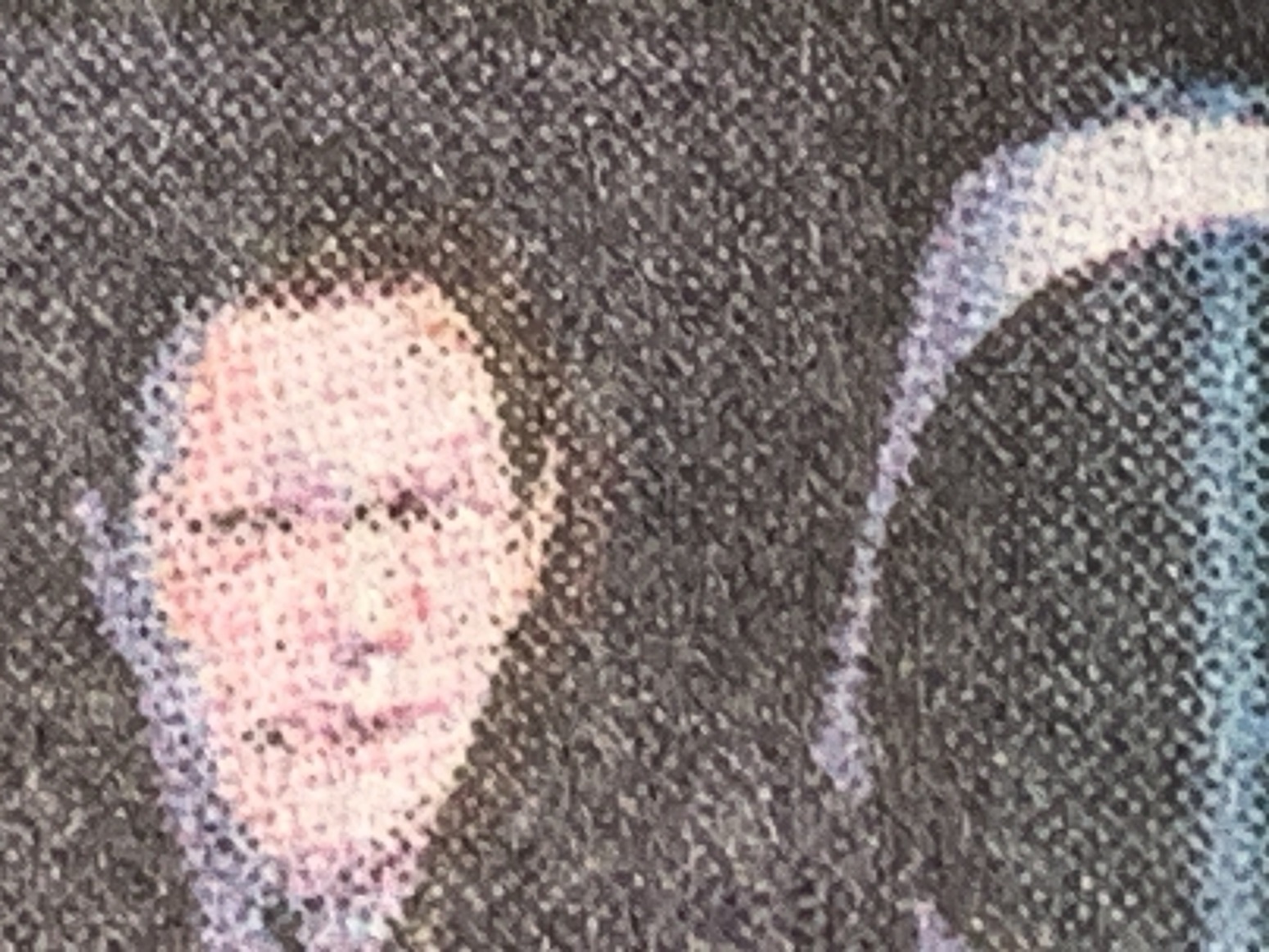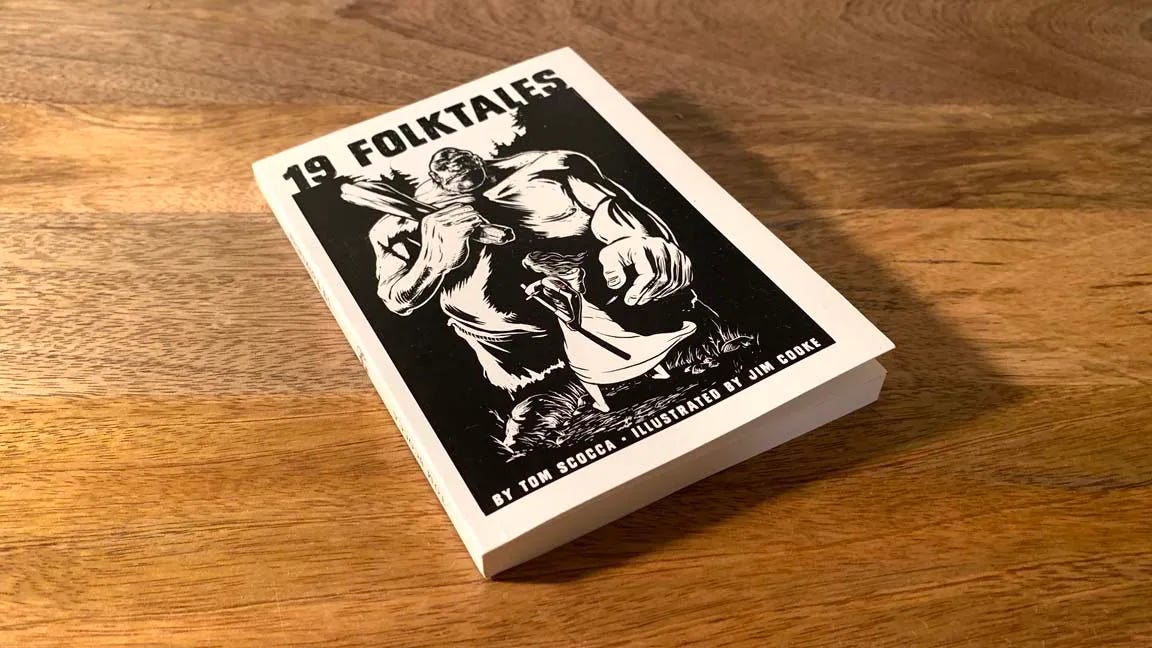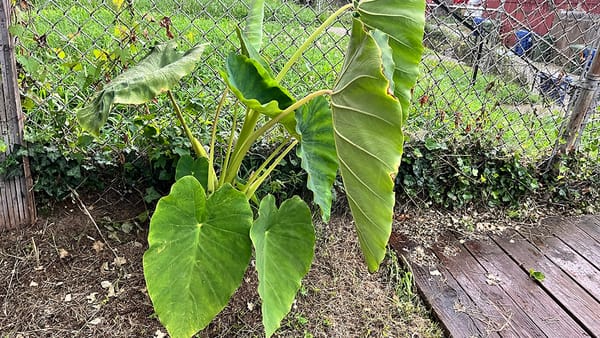The hideous spectacle of Vince McMahon
INDIGNITY VOL. 4, NO. 27

SHOW BIZ DEP’T.
A Talk With Tim Marchman: What Makes a Scandal?
THESE ARE SUCH ugly and lurid times for news, it's hard for anything in particular to command the public's imagination. Even among officially newsworthy figures, there's too much going on to keep coherently in mind: how does the Republican presidential frontrunner's civil culpability for fraud compare to his civil culpability for rape compare to his multiple criminal prosecutions compare to his off-the-cuff offer to sacrifice a NATO ally to Russia? What matters more about the richest person in the world—his reported drug abuse, his overt neo-Nazi sympathies, or the fact that his cars kill people?
But through this torrent of other terrible things, in these last few weeks, it's been possible to glimpse some truly horrifying stories about Vince McMahon, the most powerful figure in pro wrestling. Allegations of trafficking and sexual abuse against McMahon have led him to resign from the chairmanship of TKO, the successor organization to his World Wrestling Entertainment, and have produced some stomach-churning screenshots from the lawsuits, yet the apparent downfall of a titanically powerful pop-culture figure has not drawn the same kind of frenzied attention across the media that, say, the resignation of various Ivy League presidents has.
Tim Marchman, a features editor for Vice News, has been covering the McMahon story. Via text chat, we discussed the background and implications of the scandal. Warning: this discussion includes brief but specific descriptions of vile behavior.
Tom Scocca, Indignity: Briefly, for everyone who’s been following the deluge of all the other news out there: what have you been reporting about the pro-wrestling mogul Vince McMahon?
Tim Marchman: This is complicated, so bear with me. Two years ago, the Wall Street Journal reported that McMahon made secret payments to women, including women who worked for him, in exchange for them signing non-disclosure agreements about allegations that he’d sexually abused them. He subsequently resigned, and several months later forced his way back and announced he was putting the company up for sale.
Ari Emanuel’s Endeavor agency then merged WWE and the Ultimate Fighting Championship into a new sports and pseudo-sports conglomerate called TKO, bringing McMahon on as chairman of the board despite what was at the time known about the NDAs and what appeared to be a federal investigation into them—which was enough that McMahon’s mere presence on the board was listed as a risk factor in an SEC filing.
Two weeks ago, Janel Grant, one of the women who’d signed an NDA, filed an exceptionally horrifying civil lawsuit in federal court in Connecticut against McMahon, WWE, and longtime former WWE executive John Laurinaitis. She alleges that McMahon, who lived in the same building she did, groomed her after the death of her parents and brought her on at WWE as an employee, then repeatedly raped her, including in the WWE offices, and trafficked her to business associates including Laurinaitis and WWE star Brock Lesnar. (By trafficking I mean that he is alleged to have ordered her to engage in sex acts with and create explicit content for other men.) The allegations are incredibly extreme and include McMahon defecating on her during a threesome with an associate, then insisting she continue sexually servicing the associate for an hour and a half before allowing her to shower. McMahon and Laurinaitis deny the allegations.
McMahon more or less immediately resigned, and last week the Journal reported that McMahon has for quite some time been the subject of a federal criminal investigation into, among other things, sex trafficking.
Indignity: And the appalling claims against him keep expanding, right?
Marchman: We’ve reported several new things at Vice News, including that McMahon and his lawyer crafted the NDAs without the awareness of WWE or its lawyers, despite his entering WWE as a party and signing the agreements both in his personal capacity and that of WWE chairman. We also reported that Laurinaitis’ lawyer, while denying the allegations, claims that his client is a victim, just like Grant.
The most significant have to do with a former WWE wrestler named Ashley Massaro, who died by suicide in 2019. After her death, her lawyer released a sworn affidavit from 2017 in which she alleged that she had been raped at a military base in Kuwait in 2006 while on a goodwill tour for WWE, that McMahon and Laurinaitis had known, and that McMahon had ordered her to be silent and covered it up. When that affidavit was released, WWE denied that any member of management or anyone affiliated with WWE had known.
According to Laurinaitis’ lawyer, though—and this is corroborated by a podcast interview with a WWE doctor from last fall—Laurinaitis did know, and so did “most of upper management.” Subsequently, her lawyers provided me with a previously unpublished portion of a draft version of that affidavit, which they had initially omitted because it wasn’t relevant to the central claims of the concussion lawsuit in which they were representing her. In it she says she saw McMahon “making out” with female wrestlers in the locker room, describes a casting-couch scheme, and says McMahon retaliated against her for spurning his sexual advances.
While this perhaps isn’t surprising to anyone familiar at all with WWE, it also represents what I believe is the firmest and most specific substantiation to date of longstanding rumors that McMahon flagrantly operated his wrestling empire in something like the way Harvey Weinstein operated his cinematic one, relying on fear and a code of silence to protect him.
I should note—I said this was complicated!—that a wrinkle here is that Grant says McMahon didn’t actually pay her the promised hush money past an initial installment. It’s unclear whether she would have filed the suit even if he had—experts tell me it’s a pretty poorly-crafted NDA—but it’s quite possible all of this only came out because he didn’t pay. One of the things she’s seeking is for the court to void the NDA on various grounds including non-specificity, which by extension would presumably void other NDAs and allow more allegations to come to light should women choose to come forward.
Indignity: What is this sports/entertainment conglomerate valued at? WWE has a billion dollars in annual revenue, right?
Marchman: The initial deal was reported as a $21 billion merger, and TKO’s market cap is currently about $15 billion, about the same size as News Corp.
Indignity: It’s a big company, and a culturally influential one, and it seems like there’s a lot of legal paper attached to it all, which would make adversarial or investigative reporting easier to publish. Why isn’t this a bigger story?
In addition to Donald Trump being a longtime friend and business associate of McMahon’s, a WWE promoter and performer who appears to have copied a great deal of his public act directly from McMahon's act—they’re both power-suited and hairsprayed creatures of the Connecticut–Manhattan corridor in the '80s.
Marchman: I don’t want to be one of those people waving a newspaper around and saying “Why is no one covering what’s on the front page of this newspaper?”—my own shop is breaking news here, the New York Times has covered it, and the story and key developments including two McMahon resignations have been driven by aggressive, high-quality Journal coverage. I can also tell you from our traffic that people are reading about it. But I think it definitely hasn’t made the impact it should, which I assume is because wrestling is viewed as lowbrow filth and also because the idea of Vince McMahon being a sexual predator is pretty dog-bites-man stuff.
Indignity: And look how much coverage dog-bites-man got when it happened at the White House! And there is a political angle here. Wrestling isn’t just wrestling.
Marchman: Speaking of the White House, something I’d like to note here is that in addition to Donald Trump being a longtime friend and business associate of McMahon’s, a WWE promoter and performer who appears to have copied a great deal of his public act directly from McMahon's act—they’re both power-suited and hairsprayed creatures of the Connecticut–Manhattan corridor in the '80s—McMahon’s wife Linda is a former Trump cabinet official and currently heads both a Trump-aligned super PAC and a think tank called the America First Policy Institute, the vice-chair of which is Larry Kudlow.
Indignity: Has Donald Trump done his usual thing where he pretends a close associate isn’t a close associate once the trouble hits? Or has the whole McMahon scandal not impinged on Trump at all?
Marchman: To my awareness, Trump hasn’t spoken about or been asked any questions about this at all. Such questions might range from whether he ever met Grant—who was introduced to McMahon by the resident manager of their building, a luxury condo formerly known as Trump Parc Stamford and still managed by the Trump Organization—to whether, in the course of his business dealings with McMahon, he was ever offered the sexual services of a woman.
Indignity: What would it take to put those questions into play? What is it that raises a news story into something of national significance that a president or presidential candidate has to answer questions about? The White House press secretary had to talk about Claudine Gay’s fitness to be president of Harvard, for some reason. Maybe first there needs to be a Congressional hearing into Vince McMahon?
Marchman: That’s an interesting question. My own theory of scandal is that it breaks through when it either involves shocking new information or confirms a narrative that people are aware of but that hasn’t quite been substantiated. The Bill Cosby and Harvey Weinstein cases, to which I think the McMahon case is akin, are good examples of the latter, and the alchemy by which something goes from something everyone knows to a full-bore, all-consuming scandal is a little mysterious to me.
The difficulty here may be that this one falls into a bit of an uncanny valley. Despite Trump’s association with Jeffrey Epstein as well as now-accused trafficker Vince McMahon and his long, amply-documented history of sexual predation, if you did a word association with “trafficking” and “politics” I think most people would probably name Hillary Clinton due to insane conspiracy theory, as opposed to Trump, whose association with it has to do with concrete, well-documented facts.
It’s also possible that the political press just hasn’t been paying attention to the McMahon scandal at all, of course, because it’s perceived to be happening in the most embarrassing corner of the sports and entertainment industries, despite WWE’s cultural reach and ties to power players like Emanuel and Netflix, as well as the McMahon family’s close ties to Trump and his political machine.
Indignity: How has McMahon reacted to the whole situation? Does he have an identifiable press strategy? Is he trying to defend himself in the court of public opinion?
Marchman: He hasn’t been heard from since his resignation. We’ve repeatedly reached out to a high-end attorney we’ve been told is representing him, but haven’t had a response doing so much as confirming that McMahon is his client.
For its part, TKO appears to believe that with McMahon and Laurinaitis no longer associated with the company, the problems are in the past and that no one currently in their employ is implicated in this kind of misconduct, which I’d consider a somewhat questionable assumption even as I acknowledge they know more than I do.
This is entirely speculative, but my belief is that McMahon’s lawyer is telling him that if you’re the subject of a federal sex trafficking investigation the best press strategy is to not talk to the press, and if so he has a good lawyer.
Indignity: Is there a chance that this all sort of fades out, to the extent that it even faded in? Or will the federal investigation rev it up and give major outlets more incentive to cover it?
Scoops and narrative-driving stories I’ve been involved with have generally come less from cultivating long-term relationships with shadowy insiders who meet with me and tell me to follow the money (though there’s been some of that!) and more from just emailing flacks and lawyers asking questions about things I’ve read in public legal filings or in the newspaper.
Marchman: Predictions are difficult, especially about the future, but I think there are two things that will keep it from fading out. One is that investigative reporters and, crucially, lawyers are going to be chasing every rumor anyone has ever heard about WWE and calling every woman who’s ever worked there; the other is that to go by Grant’s suit, which includes depraved text messages from McMahon that are apparently real—certainly neither he nor TKO has disputed that they are—his phone, which federal investigators have, can be presumed to have incredibly damaging information on it, making it seem fairly likely charges of some sort will be brought.
Whether all of this sort of jumps the ditch and penetrates into the broader public consciousness past wrestling and sports-business enthusiasts, I have no idea. Certainly there are straightforward questions to be asked of Trump and other business associates of McMahon’s, and I think in this sort of situation, questions are the key. As an editor and reporter, I know that the scoops and narrative-driving stories I’ve been involved with have generally come less from cultivating long-term relationships with shadowy insiders who meet with me and tell me to follow the money (though there’s been some of that!) and more from just emailing flacks and lawyers asking questions about things I’ve read in public legal filings or in the newspaper.
Indignity: Discussing what ought to catch the public’s imagination is always a sort of doomed and pathetic enterprise, but in this case it seems like understanding the McMahon case is essential to understanding a whole swath of popular culture. If WWE turns out to be best understood as a trafficking organization that put on TV shows, that says a lot about the past few decades of America.
Marchman: Bill Simmons—whose longtime collaborator Connor Schell resigned from the WWE board around the same time the Journal broke the hush-money scandal, something curiously unmentioned on his Wikipedia page—is currently involved with a Netflix documentary about McMahon which, from what Simmons has written and said about McMahon in the past, I would guess on some level is meant to advance the accurate theory that, warts and all, he was and may be the key to understanding America as it was in his time. Apparently they’ve kept thinking they had finished it up and have had to keep filming to account for new revelations. They must be in a real pickle now, as any remotely honest depiction of his life would depict him primarily as a monstrous lifelong predator who operated so openly that his very brazenness shielded and protected him from scrutiny, which I doubt is how they had it laid out the whole time.
I mention that because as much as it’s true that he’s a bizarre curio whose exposure as a highly credibly accused trafficker and predator has basically played as a minor novelty, it’s also true that he’s a genuinely powerful figure who’s been at the center of pop culture for decades creating entertainment that was formative for many people—and there’s not really anything about these revelations that you couldn’t have inferred from watching his show.
WWE programming, incidentally, is at its greatest peak of popularity in decades, and has sustained that through the scandal. Its Friday night Smackdown show is routinely the most or among the most watched TV shows in the country, and its Monday night Raw show is routinely the most popular show on cable. This past year WWE signed new broadcast deals with USA, Netflix, and the CW, and retains its current one with Peacock, ensuring that McMahon’s creative vision—the flame of which is now carried by his son-in-law, whom he trained for the job for more than 20 years—will continue to entertain and instruct children all over the world for many years to come. The Netflix deal carries options allowing the streamer to air WWE content all over the world for up to the next 20 years.
Indignity: Part of what happened with Harvey Weinstein seemed to be that it became possible for people to hold him to account because his power had slipped. It was nice to think that Hollywood was really trying to root out the monsters in its midst, but then there was Mel Gibson chugging right along—a frothing bigot with ghastly partner violence on his record, but still apparently too valuable and influential in the industry to freeze out. Can they successfully cut Vince McMahon out of the industry, and out of the product that Vince McMahon built?
Marchman: So there are really a couple of aspects to that. As a commercial and creative enterprise, it’s not an issue at all. Since his initial resignation, WWE has been more successful without McMahon than it was with him, and it will be trivially easy to memory-hole him; I doubt you’ll ever hear his name spoken on their programming again until his death and maybe not then, and while his centrality as an announcer and performer to the company’s much-mythologized history will pose some difficulties, I’m sure they’ll work their way around him.
The bigger issue is that, and I mean this purely descriptively, McMahon is a genuine auteur. Part of the reason he’s such a representative figure is that he personally turned wrestling from a diverse and regionally specific culture into an international monoculture; WWE is the Walmart that ate up all the mom-and-pop hardware stores. The entire company is an embodiment of his idiosyncratic vision, and pretty much every wrestler has grown up with it, so that even a lot of what competitors do is determined by his control freakery—what people are supposed to look like, how they’re supposed to act, and even little tics of language are all pure Vince McMahon, or so defined by him that anything that doesn't fit his vision comes off as not-McMahon rather than what it is in its own right. So even as he personally disappears, he lives on in a very real sense as a corporation, Walt Disney-style.
Indignity: And that circles back to how this has been a business-section story, rather than a front-page saga, in my morning Times. Maybe that’s because the Journal beat them to it? But the coverage doesn’t really seem commensurate with McMahon’s importance as a cultural figure.
If there’s not blanket coverage of his downfall—and to be fair, there’s a whole lot going on in the world—does that mean nobody’s really going to reckon with this cosmos he built, and what it means that this particular person built it?
Marchman: I’m actually hopeful for the upcoming documentary, even if it’s airing on WWE’s new business partner Netflix. Simmons is an ambitious guy and you have to think he wants to do something on the scale of the documentaries Schell produced about O.J. Simpson and Michael Jordan. National conversations don’t always start in response to actual events, but cultural events designed to start national conversations sometimes do, and the material is certainly there.
Indignity: Trying to close the documentary under these conditions does seems like a nightmare, though. Does anyone have any sense of when the federal investigation might wrap up?
Marchman: There’s no way to tell, especially because we have no way to tell what they’re looking at. If they decide to look into everything, the pit is just endless. As an example, the McMahons and the WWF were involved in an extremely serious child-molestation scandal that the FBI investigated in a fairly half-assed way about 30 years ago.
I feel like the fact that this deep into this conversation I’m mentioning an extremely serious child-molestation scandal as a bit of an aside is kind of an indication of how sprawling a federal investigation might get?
Indignity: So do they just wrap this documentary and immediately start on the sequel?
Marchman: I’m sure some very bleary-eyed people have been having conversations about this for the last few weeks, especially because it might feel a little dissonant to cover both a trafficking scandal and legitimately compelling stories about, say, how McMahon warred on the old promotional cartels and turned a highly regional form of entertainment into a homogenized national one and What This Says About Our World. I’m sure you could do it if you had a coherent theory of how all of this was an expression of the same thing, but it would be awfully hard.
What do you make of all this, as someone who’s clearly, ah, less familiar with McMahon than I am?
The cliche you’d use to pitch a 10-part prestige documentary series is that the real stuff is fake and the fake stuff is real, which isn’t quite as facile as it sounds.
Indignity: In the most literal-minded sense, to someone who’s only ever really seen pro wrestling in peripheral vision, there’s something unsurprising about hearing that the mastermind of the sleazy, gratuitously sexualized spectacle of brutality as entertainment was allegedly a violent degenerate behind the scenes, too. It’s like the spandex-and-steroids version of finding out that Woody Allen had a furtively creepy sex life. But it’s pro wrestling: wasn’t it supposed to be fake?
Marchman: The cliche you’d use to pitch a 10-part prestige documentary series is that the real stuff is fake and the fake stuff is real, which isn’t quite as facile as it sounds. One of the distressing things we’ve reported is that in the unpublished statement we obtained from her lawyers, the specific method of retaliation that McMahon used against Ashley Massaro was that he wrote degrading, humiliating scripts for her to perform—something she said he’d done to another female wrestler and which he was known for. Which has people going through old shows looking for specific instances of degrading, humiliating treatment of women—of which there are a lot—and wondering what motivated them.
There’s a very blurry line between reality and fiction there, because the wrestler is a performer playing a part, but that part is also ideally supposed to be their real personality turned up to 11. So by scripting humiliating dialogue or action for women who rejected his advances, McMahon was attacking their marketability but also probably in a lot of cases their sense of self-worth. It makes a lot of the on-air programming itself seem like watching an evil billionaire torturing people—which is of course, in the scripted universe of the show, where McMahon plays the evil Mr. McMahon character, what it’s purporting to be.
And of course that’s also part of the magic trick: If you objected to the sleazy, gratuitously sexualized spectacle, McMahon and his defenders could say, “Ah, it’s just a show, don’t take it too seriously.”
Indignity: Well, luckily, it’s not as if the culture at large got confused about the difference between enjoying someone playacting the role of a depraved billionaire and handing over actual power to a genuinely depraved billionaire.
Marchman: I would probably hate an airport book called How Vince McMahon Explains the 21st Century, but someone’s going to make a lot of money writing it.

EASY LISTENING DEP’T.
INDIGNITY MORNING PODCAST
Indignity Morning Podcast No. 217: Florida, as well as Texas, Arizona, and Southern California.
Tom Scocca • Feb 12, 2024


SANDWICH RECIPES DEP’T.
WE PRESENT INSTRUCTIONS for the assembly of sandwiches from 800 Proved Pecan Recipes: Their Place in the Menu, by 5,083 Housewives in America and abroad, who in response to a request for their choicest proved pecan recipes, submitted over twenty-one thousand, covering every phase of every meal, for all seasons of the year, published by the Keystone Pecan Research Laboratory, Manheim, Lancaster County, Pennsylvania in 1925, now in the Public Domain and available at archive.org for the delectation of all.
Banana Sandwich Filling
1 C. chopped pecans
1 banana
1/2 C. grape pulp
Orange juice or pineapple juice or salad dressing
Mix pecans, banana, and grape pulp. Moisten with orange or pineapple juice or cooked salad dressing.
—Mrs. Fritz Fly.
Cheese and Date Sandwiches
3/8 lb. ground dates
1 C. grated pecans
Lemon juice
Brown bread
White bread
Cream cheese
Combine dates and pecans and moisten with lemon juice. Place filling on a slice of buttered white bread and cover with a slice of brown bread. Over the brown bread spread a filling of cream cheese and top with a slice of white bread. Cut in triangular shapes.
—Mrs. H. Stuedemann.
If you decide to prepare and attempt to enjoy a sandwich inspired by this offering, be sure to send a picture to indignity@indignity.net.

MARKETING DEP'T.

Flaming Hydra is right now!
EACH WEEKDAY, SUBSCRIBERS to Flaming Hydra now receive a newsletter featuring pieces written by two different members of the Flaming Hydra cooperative, an all-star collection of independent writers, on a rotating basis. Everyone chips in their bit, and the readers get a steady diet of items. And if the readers keep on subscribing, the writers keep on chipping in, and the whole thing moves toward being a self-sustaining publication.

The second printing of 19 FOLK TALES is now available for gift-giving and personal perusal! Huddle up against the cold with a cozy collection of stories, each of which is concise enough to read within the snowy part of a wintry-mix storm.

HMM WEEKLY MINI-ZINE, Subject: GAME SHOW, Joe MacLeod’s account of his Total Experience of a Journey Into Television, expanded from the original published account found here at Hmm Daily. The special MINI ZINE features other viewpoints related to an appearance on, at, and inside the teevee game show Who Wants to Be A Millionaire, available for purchase at SHOPULA.
INDIGNITY is a general-interest publication for a discerning and self-selected audience. We appreciate and depend on your support!






